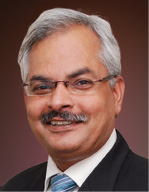The Indian generic pharmaceutical industry got a shot in the arm on 9 March when India’s Patent Office invoked the compulsory licence provisions of the Patents Act to allow Natco Pharma to manufacture and sell a generic version of the blockbuster cancer drug sorafenib tosylate (sold as Nexavar), patented by the German health care giant Bayer.
Under section 84 of the Patents Act, any interested person can apply to the controller for a compulsory licence after the expiry of three years from the date of grant of the patent if the reasonable requirements of the public with respect to the patented invention have not been satisfied, if the patented invention is not available to the public at a reasonably affordable price, or if the patented invention has not been worked in India.

Lex Orbis IP Practice
Availability
The controller concluded that based on the probable number of patients requiring the drug, Bayer had imported and made it available to a little above 2% of the eligible patients since the patent was granted in 2008. As a result, the reasonable requirements of the public with respect to the patented invention have not been satisfied.
You must be a
subscribersubscribersubscribersubscriber
to read this content, please
subscribesubscribesubscribesubscribe
today.
For group subscribers, please click here to access.
Interested in group subscription? Please contact us.
你需要登录去解锁本文内容。欢迎注册账号。如果想阅读月刊所有文章,欢迎成为我们的订阅会员成为我们的订阅会员。
Abhai Pandey is an attorney-at-law with extensive experience in civil and criminal enforcement of intellectual property rights. He has over 16 years of experience in practice in this domain.
709/710 Tolstoy House, 15-17 Tolstoy Marg
New Delhi – 110 001
India
Tel: +91 11 2371 6565
Fax: +91 11 2371 6556
Email: mail@lexorbis.com























